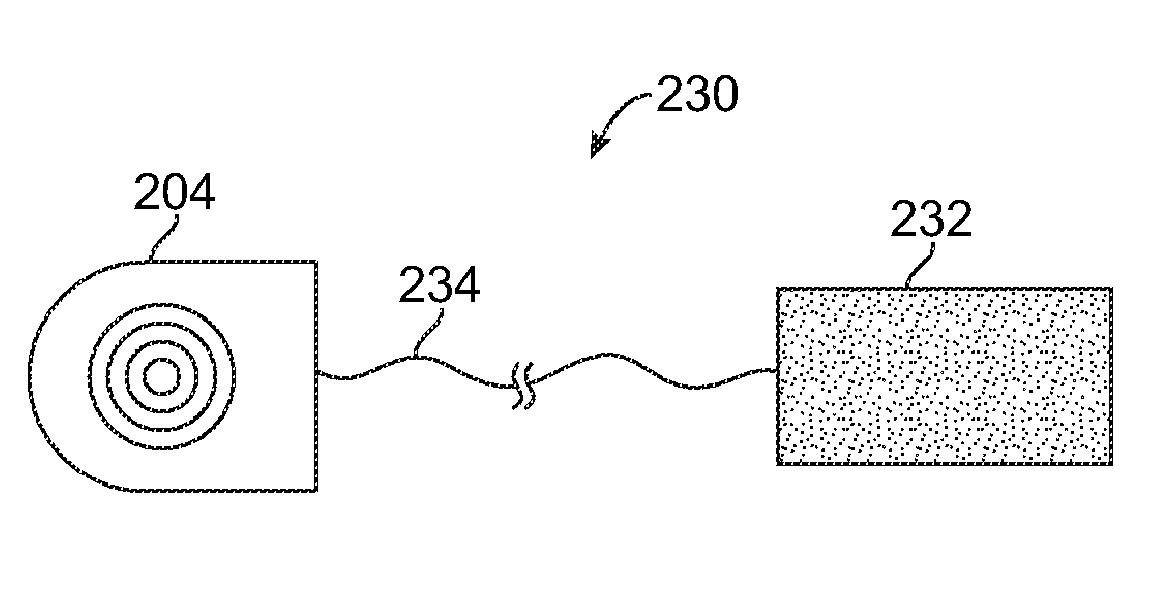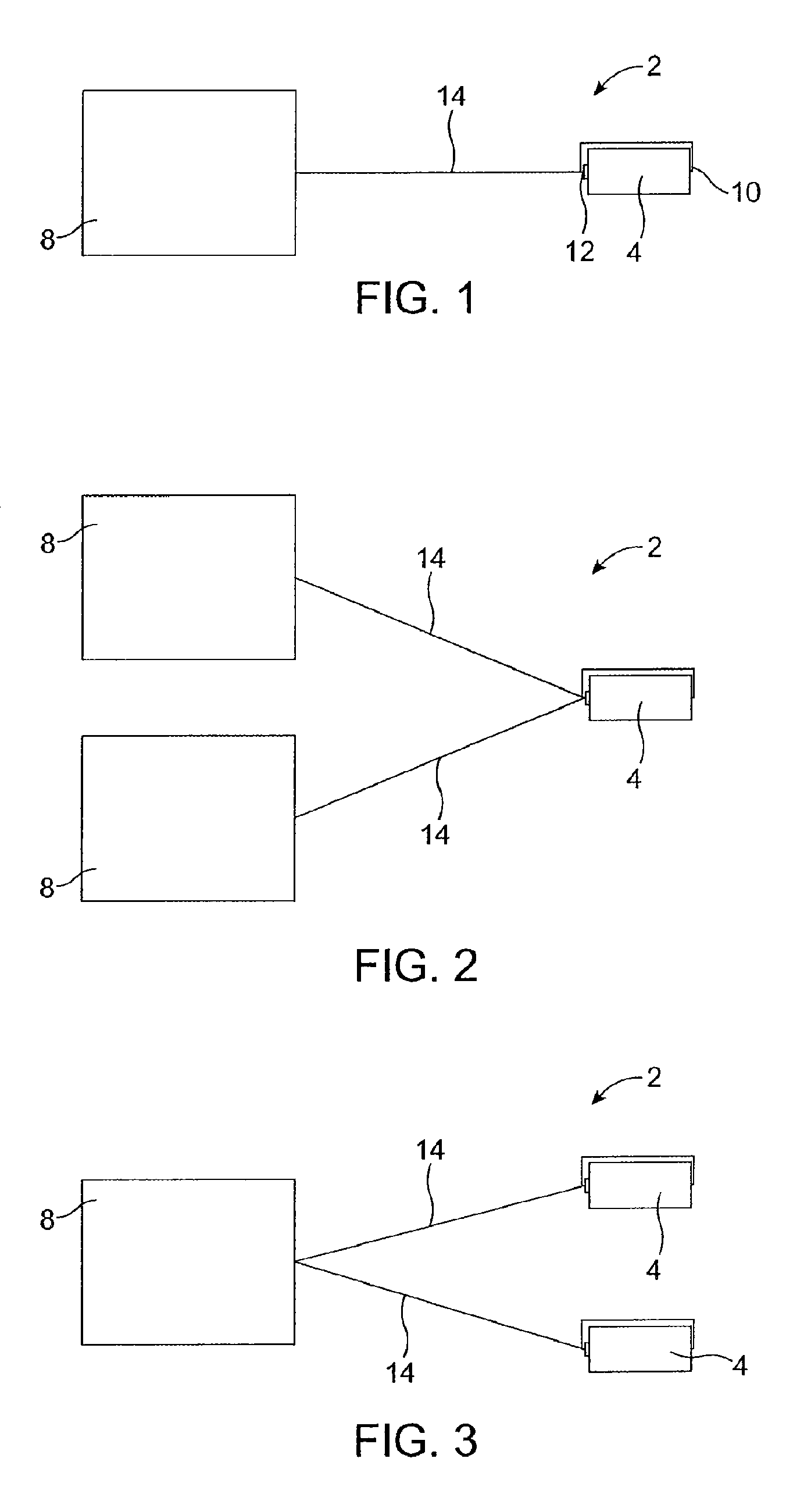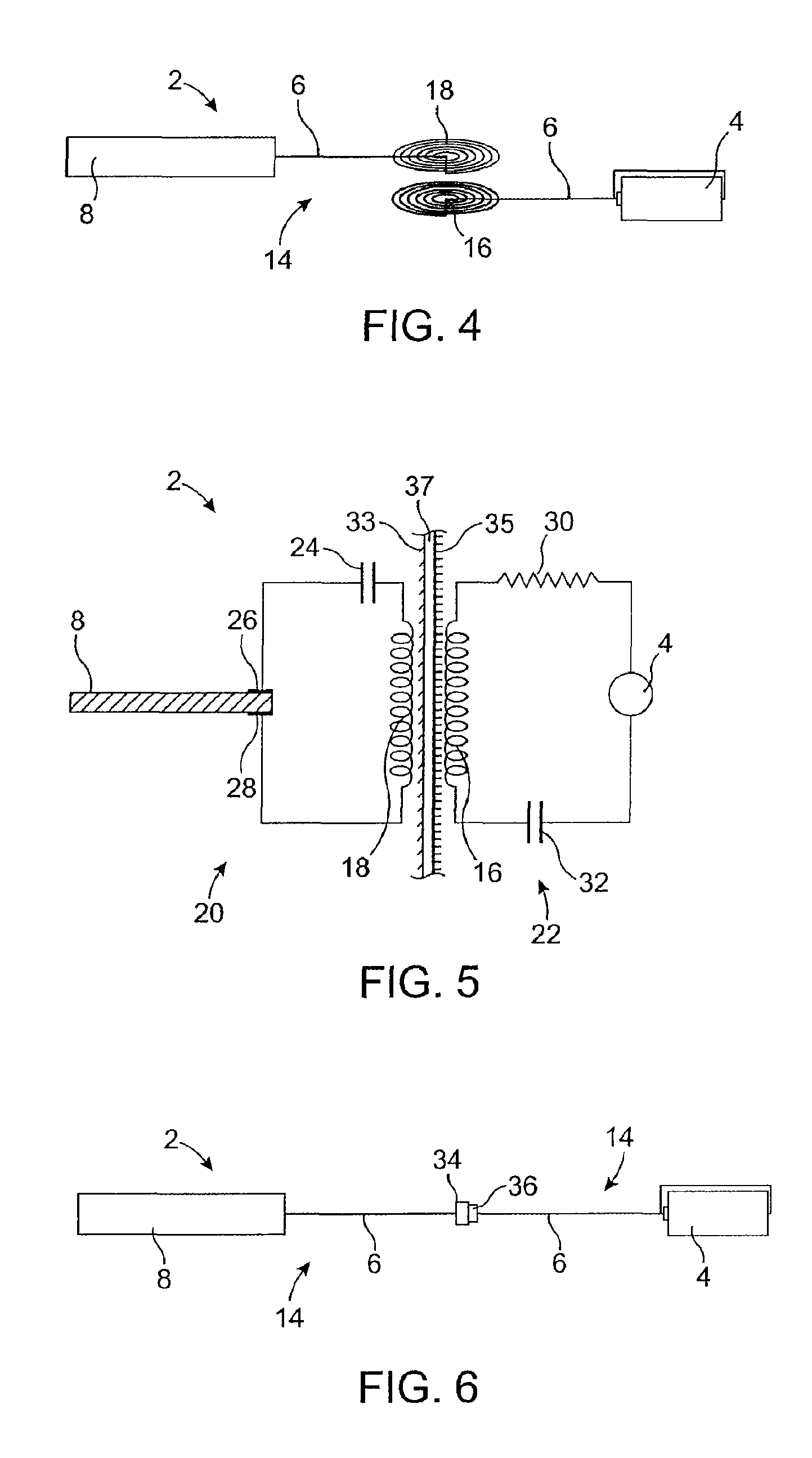Implantable obstructive sleep apnea sensor
a technology of obstructive sleep apnea and sensor, which is applied in the direction of prosthesis, catheter, ligament, etc., can solve the problems of poor snoring, labored breathing, noisy breathing, etc., and achieve the effect of low stiffness
- Summary
- Abstract
- Description
- Claims
- Application Information
AI Technical Summary
Problems solved by technology
Method used
Image
Examples
Embodiment Construction
Devices and Methods
[0099]A first aspect of the invention is a device for the treatment of disorders associated with improper airway patency, such as snoring or sleep apnea. The device comprises of an actuator element to adjust the opening of the airway. In a preferred embodiment, the actuator element comprises of an electroactive polymer (EAP) element. The electroactive polymer element in the device assists in maintaining appropriate airway opening to treat the disorders. Typically, the EAP element provides support for the walls of an airway, when the walls collapse, and thus, completely or partially opens the airway.
[0100]The device functions by maintaining energized and non-energized configurations of the EAP element. In preferred embodiments, during sleep, the EAP element is energized with electricity to change its shape and thus modify the opening of the airway. Typically, in the non-energized configuration the EAP element is soft and in the energized configuration is stiffer. T...
PUM
 Login to View More
Login to View More Abstract
Description
Claims
Application Information
 Login to View More
Login to View More - R&D
- Intellectual Property
- Life Sciences
- Materials
- Tech Scout
- Unparalleled Data Quality
- Higher Quality Content
- 60% Fewer Hallucinations
Browse by: Latest US Patents, China's latest patents, Technical Efficacy Thesaurus, Application Domain, Technology Topic, Popular Technical Reports.
© 2025 PatSnap. All rights reserved.Legal|Privacy policy|Modern Slavery Act Transparency Statement|Sitemap|About US| Contact US: help@patsnap.com



